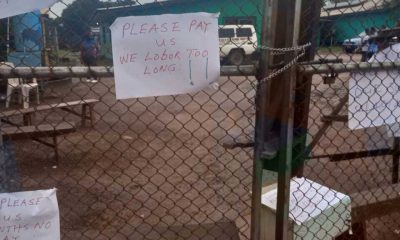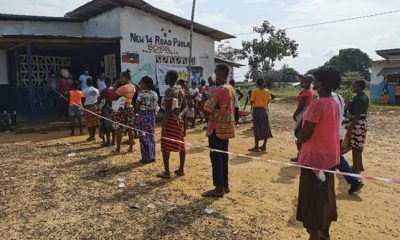Several stakeholders of Liberia’s health sector have underscored the need to strengthen the sector’s relationship with the press as a means of effectively tackling any future outbreak in the country. The Government of Liberia, during this year’s Independence Day celebration, awarded the Press Union of Liberia for the role the Liberian media played in rolling back the Ebola virus disease and many health experts continue to stress the importance of the media.
Speaking at a one day workshop in Kakata, Margibi County, Acting Chair of the Incident Management System (IMS) at the Ministry of Health, Thomas Nagbe said MoH is willing to work with the media and will correct mistakes of the past. He disclosed that the ministry is developing a draft media kit for disease surveillance in the country.
With recorded success in Kenya, Botswana, Uganda and Nigeria, the disease surveillance system is expected strengthen public health surveillance and response at various level of the health sector and the media will play a collaborative role in achieving the target.
Liberia Chief Medical Officer, Dr. Francis Kateh, who did not attend the session, expressed the Health Ministry’s fullest commitment in working with the media especially with the Integrated Disease Surveillance and Response (IDSR) strategy is being consider.
In the IDSR plan, the media is expected to sensitize the public about the signs and symptoms of priority disease and help remove stigma of seeking health care. The media will also connect with the community and the health workers and help report on the diseases in other to break the chain of transmission.
Margibi County Medical Officer, Dr. Adolphus Yeiah described the move as ‘an attempt to stimulate, established and manage the relationship between the health sector and the media while admitting that the media performance during the Ebola crisis have thought the health sector a lesson considering the challenges the government endured. “If the health sector must succeed the press has to be on board,” Dr. Yeiah added.
Press Union of Liberia (PUL) President Abdullah Kamara assured that the media will work to help improve the health sector adding that the initial challenge during the Ebola outbreak was the lack of education, something, he said even the media struggled with. Kamara noted that if the media must tell the full Liberian story, media practitioners must be inform.
The Presidents of the Health Reporters Network and the Association of Liberia Community Radio (ALICOR) pledged their respective associations’ commitment in working with the Ministry of Health and partners. ALICOR President, William Kwah stressed the cardinal role community radio stations played during the outbreak although he had some reservations.
“During the Ebola crisis, community radio was recognized for their work but were never appreciated,” he said. “We want to extend this to the MoH that we are willing to work.”









































































































































































































































































































































































































































































































































































































